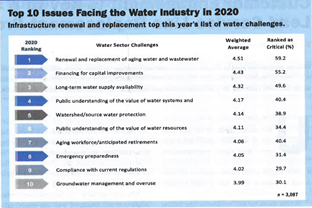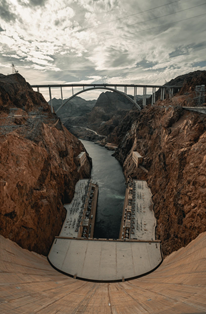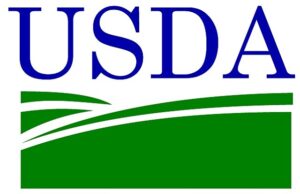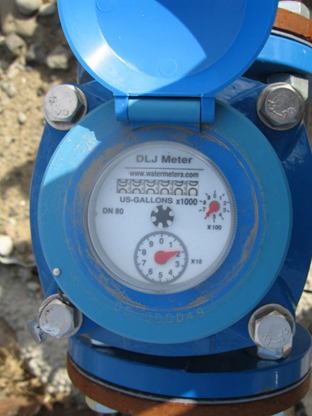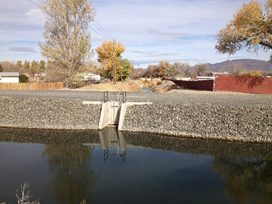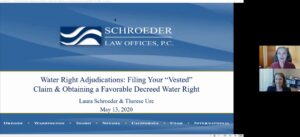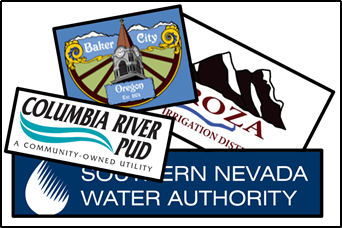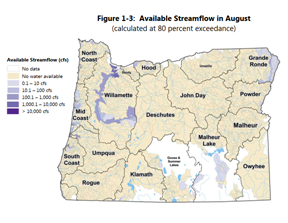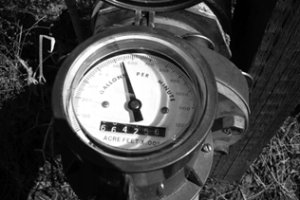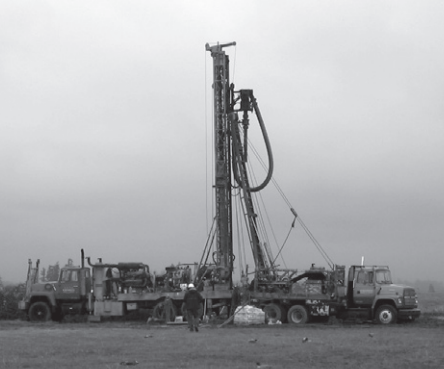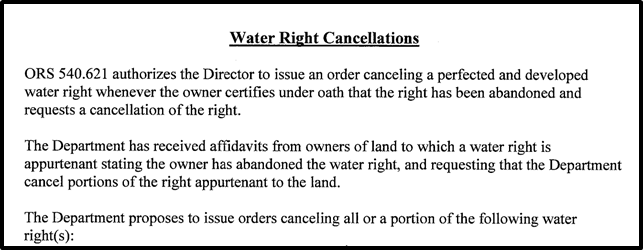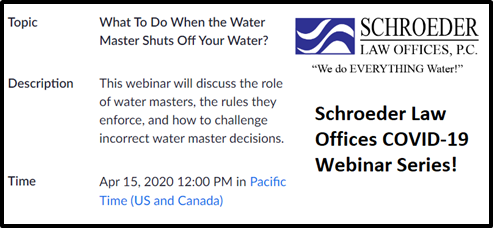This post is one of a series highlighting the ways in which water users have adapted to life in the time of COVID-19.
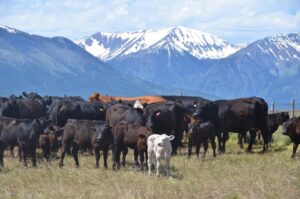 Todd Nash is a rancher, Wallowa County Commissioner, and President Elect for the Oregon Cattlemen’s Association. He and his wife, Angie, own Nash Natural Beef. They run primarily an angus cow-calf operation in eastern Oregon, also raising a few bulls. They raise high quality natural beef (no antibiotics or hormones) in Wallowa County. Their cattle is grain finished in a custom yard in Vale, Oregon. The majority of Nash’s cattle go through the feed yard before harvest. Then, they become part of Painted Hills Natural Beef for sale in restaurants and high-end supermarkets. This year, however, COVID-19 created a disruption in the meat distribution chain. This caused Nash to change their business model to focus on direct customer sales.
Todd Nash is a rancher, Wallowa County Commissioner, and President Elect for the Oregon Cattlemen’s Association. He and his wife, Angie, own Nash Natural Beef. They run primarily an angus cow-calf operation in eastern Oregon, also raising a few bulls. They raise high quality natural beef (no antibiotics or hormones) in Wallowa County. Their cattle is grain finished in a custom yard in Vale, Oregon. The majority of Nash’s cattle go through the feed yard before harvest. Then, they become part of Painted Hills Natural Beef for sale in restaurants and high-end supermarkets. This year, however, COVID-19 created a disruption in the meat distribution chain. This caused Nash to change their business model to focus on direct customer sales.
Disruption to the Meat Distribution Chain
The COVID-19 virus created a meat processing bottleneck. Some of the larger packing plants shut down or slowed down due to sick employees. Nash received information in early 2020 that he should try to sell cattle on his own due to this challenge. The concept of direct customer sales was not totally foreign to Nash. They had done something similar in 2008 during the economic recession. This year, they shared their plans to take whole and half beef orders on Facebook. They worked directly with three local processors: Boston Beef House in Ontario, Hines Meat Company in La Grande, and Valley Meat Service in Wallowa. Customers paid only $2.50 per pound hanging weight, as well as the butchering fees. Most of the other sales Nash saw were over $3.00 per pound. This allowed customers to buy Nash Natural Beef at very affordable prices.
Nash was humbled and overwhelmed by the enthusiastic response they received from customers both near and far. They sold out their entire fat cattle crop in May. The animals were harvested in June and July. Customers were able to pick up their beef directly from the nearest of the three processors, rather than delivering the beef as they had done in 2008. Customer reviews were also spectacular. Nash Natural Beef has always focused on genetics and DNA markers for tenderness and marbling. They take a lot of pride in the product they raise. It was very rewarding for Nash to have a direct connection with Nash Natural Beef’s customers and to share in their enjoyment of Nash’s high-quality beef.
A Growing Need for Small Processors
Nash says that 2020 has really highlighted our vulnerabilities from concentrating U.S. food systems, and the need for small processing facilities throughout Oregon. In general, livestock producers in Oregon must sell their meat using United States Department of Agriculture (“USDA”) inspected facilities. It is very expensive for small processors to become USDA certified and hire additional staff. Additionally, staffing can be difficult in the meat processing industry. This results in a lot of meat being processed in large, out-of-state facilities. An exception to this rule is called “custom-exempt” processing. This allows non-USDA, state-licensed facilities to slaughter and process livestock for the exclusive use of livestock owners, their family, and nonpaying guests. As such, persons can purchase live animals for processing at “custom-exempt” facilities. However, “custom-exempt” sales are usually limited to whole or half beef sales due to the need to purchase the live animal. This excludes the ability to buy and sell small quantities and specific cuts.
Nash gave an interview for the Oregon Cattlemen’s Association earlier this year on the topic of the PRIME Act (Processing Revival and Intrastate Meat Exemption Act). The Act, cosponsored by Oregon Congressman Greg Walden, would expand the exemption for state-licensed “custom-exempt” facilities. The Act would allow meat distribution to household consumers within the State, as well as restaurants, hotels, boarding houses, grocery stores, or other establishments in the State that are involved in the preparation of meals sold directly to consumers or offer meat and meat food product for sale directly to consumers in the State. Nash says that the PRIME Act would help keep beef produced in Oregon in the State. It would provide more economic opportunities for Oregon’s rural communities. And it would allow consumers to trace where their meat is being raised and processed. Nash has seen first-hand that customers really appreciate knowing how and where their meat is raised and having a direct connection with their rancher.
Better Days Ahead
Post-COVID, Nash is looking forward to a better market and higher cattle prices. He has worked through the challenges that have come with COVID-19, and is optimistic that better days are ahead. He thinks that Nash Natural Beef will continue doing direct customer sales in the future. They have already received orders for next year, and cattle will be ready in May or June of 2021. Contact Nash Natural Beef directly for more information! Additionally, the Oregon Cattlemen’s Association started a directory of members who are willing to sell beef cattle directly to customers.
When asked whether he enjoys being a rancher, Nash explains that if he did anything else, anywhere else, ranching in Wallowa County is what he would want to do on vacation. Nash enjoys the independence of raising his own cattle, and the comradery that is shared with other ranchers. There is always something to do every day and a reason to get out of bed. Although COVID-19 has been difficult, he is looking forward to having a closer relationship with customers going forward. He is hopeful that a fix to current federal laws will create more opportunities for small, local producers to provide Oregon residents with the wonderful beef that is raised in-State.
Stay tuned to Schroeder Law Offices’ Water Law Blog for more news and stories!





